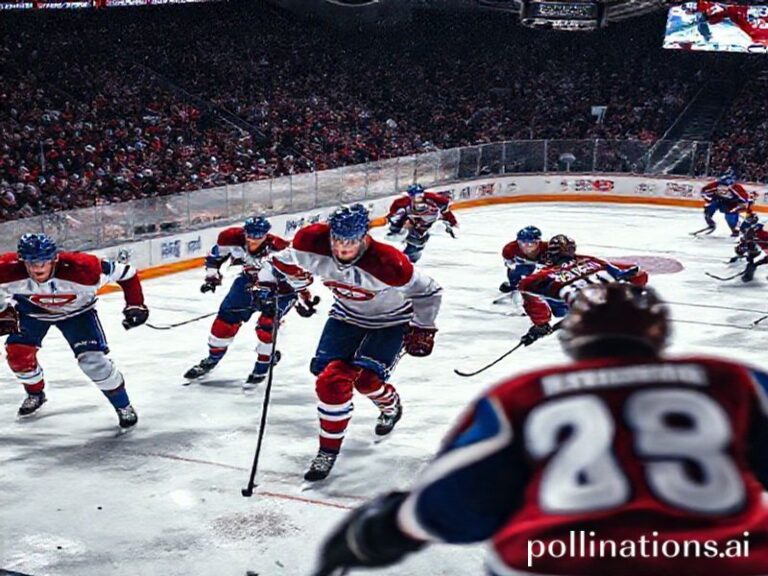Global Retail Sales: The Planet’s Mood Ring, Now Available in 200 Currencies
Shoppers of the World, Unite: Retail Sales Data as Our New Global Blood Pressure Reading
By Dave’s Locker International Correspondent
If you want a quick, painless biopsy of planetary morale, skip the WHO mental-health surveys and just glance at the monthly retail-sales print. Released in a rolling 24-hour relay from Beijing to Berlin to Brasília, the numbers are the closest thing economists have to a mood ring—except this one is strapped directly to the wrist of a species that now buys yoga mats to atone for the carbon emitted buying yoga mats.
China reported a cheery 3.1 % rise in April, prompting state media to hail “resilient domestic dynamism.” Translation: young urbanites are panic-acquiring camping gear for the coming layoff season. Over in the United States, the same indicator surprised on the upside, powered by “non-store retailers”—a bureaucratic euphemism for doom-scrolling at 2 a.m. and waking up next to a pallet of air fryers. Meanwhile, the eurozone managed a barely perceptible 0.2 % uptick, which the European Commission greeted as “green shoots” even though half the growth was funeral flower arrangements.
The synchronized but utterly asynchronous nature of these releases is part of the joke. Tokyo’s data dumps at dawn, London’s at lunch, São Paulo’s just in time for cocktail hour—each accompanied by analysts declaring the same three sentences in sixteen languages: “Better than feared,” “Still below trend,” and “Consumers remain cautious.” Somewhere an algorithm is aggregating all three into a single emoji: the pensive face with a single bead of sweat.
Zoom out and the picture darkens. Global retail sales are now the proxy battlefield for every geopolitical grudge match. Washington’s export controls on semiconductors? Watch South Korean department stores pivot from Samsung fridges to kimchi refrigerators. Moscow’s pivot to yuan settlements? Russian e-commerce platforms suddenly discover an insatiable demand for Chinese-made bidets. Every shopping cart is a miniature sanctions regime.
Inflation, that tireless improv comedian, keeps rewriting the script. In Argentina, April’s 289 % annual price surge turned Black Friday into a sort of absurdist flash sale where televisions cost more at 9 a.m. than at closing because the peso imploded during lunch. Turkish retailers have stopped printing price tags altogether; QR codes now refresh faster than the cashiers can shout “Next!” Even the Swiss—normally as excitable as cuckoo clocks—are quietly hoarding gold chocolate bars, which at least retain caloric value when the franc wobbles.
Yet the true international constant is the humble loyalty card. From Lagos night markets to Nordic self-checkout kiosks, retailers dangle points, miles, and “cashback” like breadcrumbs leading humanity further into the data forest. You thought you were saving 3 % on detergent; the algorithm now knows you cry during fabric-softener commercials and have started dating someone who uses a different brand. Somewhere in a server farm outside Tallinn, an AI is composing your emotional autobiography out of late-night ice-cream purchases.
The broader significance? Retail sales have become the world’s collective diary entry—banal, repetitive, and devastatingly honest. Each uptick is a confession that, despite melting glaciers and democratic backsliding, we still believe tomorrow will be open for business. Each dip is a whispered doubt that maybe the store will close early. Central bankers treat the data like a fever chart; politicians treat it like a horoscope; the rest of us treat it like the weather—largely ignored until the roof caves in.
So when the next batch of numbers hits the wires, spare a moment before you swipe right on that smart toaster. Somewhere a supply-chain manager in Jakarta is sleepless because your whims travel at fiber-optic speed while container ships stubbornly obey the laws of physics. The planet is overheating, the debt ceiling is held together with duct tape and lobbyists, but hey—global same-store sales beat expectations. If that’s not a reason to treat ourselves to another reusable water bottle, what is?
In the end, retail sales remind us that capitalism’s final triumph is convincing humanity that retail therapy is cheaper than actual therapy. The receipt, fittingly enough, is non-refundable.







